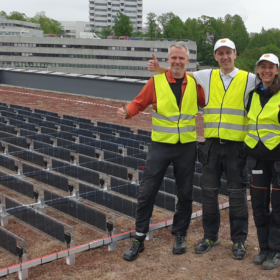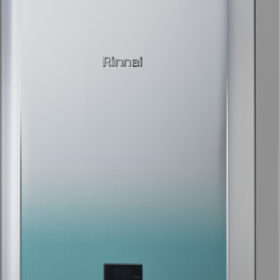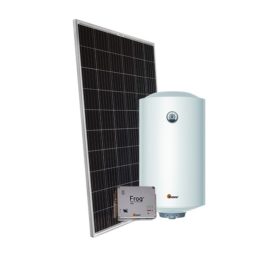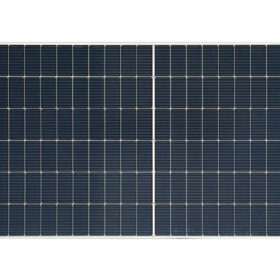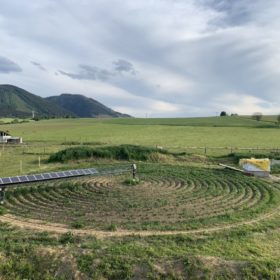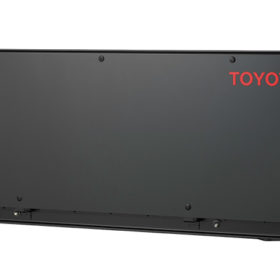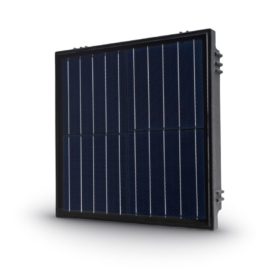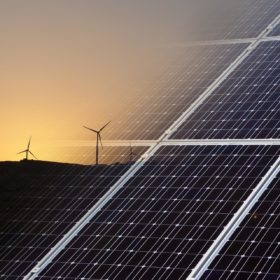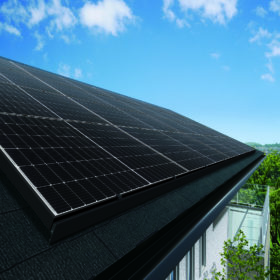Vertical rooftop PV pilot goes online in Norway
Over Easy Solar AS has developed a rooftop PV system with two generation peaks – one in the morning at 11 am, and one in the evening at 7 pm. It has been deployed on a school building.
Hydrogen combustion tech for residential water heaters
Japan’s Rinnai has unveiled what it claims is the world’s first 100% hydrogen combustion technology for residential water heaters. It is currently using the hydrogen water heater in demonstration projects in Australia, prior to commercialization.
Solar-powered offgrid residential unit from Japan
Japan’s Arth has designed an autonomous habitation module that produces water in places without energy and water infrastructure. The company said the residential unit could also be used as an emergency evacuation site.
Photovoltaic water heater from Italy
Italian solar panel manufacturer Sunerg has developed an integrated photovoltaic water heater solution based on two resistances. The system relies on a maximum power point tracking (MPPT) controller and can work with a PV module with a power output of up to 450 W.
SDN launches 550 W solar module with 21.28% efficiency
The Korean manufacturer launched a new bifacial module based on M10 wafers and is planning to produce bigger modules based on M12 wafers starting from the third quarter.
Solar arm for agrivoltaic applications
A Slovakian startup has developed a photovoltaic-integrated arm that provides off-grid power for weeding and other small agricultural applications. In its largest configuration, the system is 18 meters long, has a capacity of 2.4 kW, and is able to cover a cultivated area of 994 m².
Toyota unveils 8.7 kWh battery for residential applications
The battery has a rated output of 5.5 kW and can be installed in outdoor environments. It is equipped with a hybrid power conditioner, a DC-to-DC converter, and a vehicle power supply adapter with a maximum output of 1.1 kWh.
New solar module for pavement applications
Hungary’s Platio Solar has developed a new PV module line featuring monocrystalline and polycrystalline cells with clear or opal glass.
Solar-plus-storage vs. wind-plus-storage
US scientists have come up with an analytical way to evaluate the costs and net value of different configurations of large-scale wind and solar projects paired with battery storage. They identified six trends in the US electricity market and found that their framework is aligned with current commercial practices.
Sharp presents 375 W rooftop PV module for gable roofs
Sharp’s new 375 W solar panels feature multi-wire technology, with a power conversion efficiency of 20.4%.

